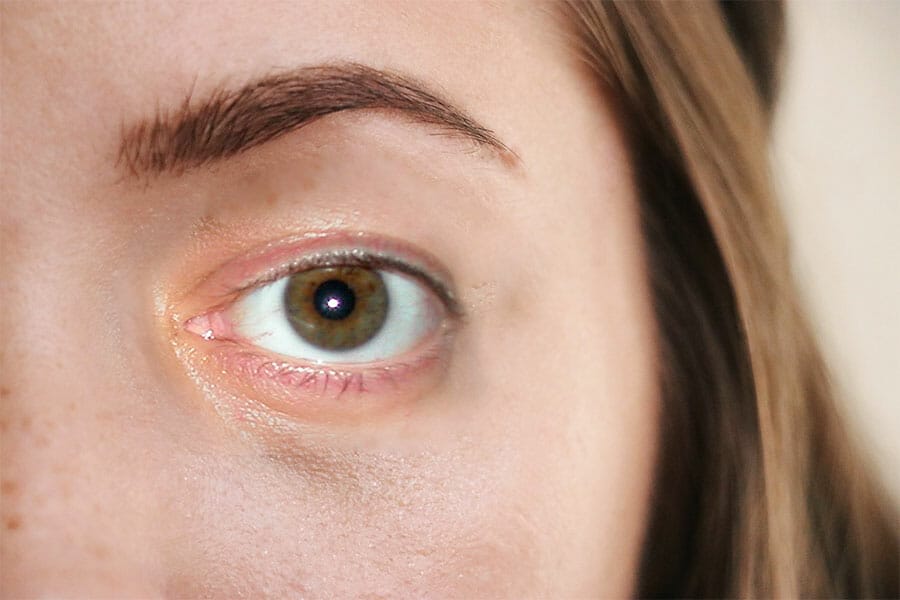According to the National Keratoconus Foundation, it is estimated that 1 in 2000 Americans have keratoconus. Corneal collagen cross-linking is a safe and effective treatment option for those with keratoconus and has been performed on thousands of patients worldwide.
What is keratoconus?
Keratoconus is a progressive eye condition in which the cornea, the clear front surface of the eye, thins and bulges outward, resulting in distorted vision. This condition can be treated by a procedure called corneal collagen cross-linking (CXL).
What are the different symptoms of keratoconus?
Keratoconus is a progressive eye condition in which the cornea, the clear front surface of the eye, thins and bulges outward, resulting in distorted vision. The common symptoms of keratoconus include:
- Blurred vision
- Distorted vision
- Glare and halos around lights
- Increased sensitivity to light
- Frequent changes in eyeglass or contact lens prescriptions
If you notice any of these symptoms or experience sudden changes in your vision and find it difficult for you to perform your daily activities, schedule an appointment at an Amplify practice near you.
What is corneal collagen cross-linking (CXL)?
Corneal collagen cross-linking (CXL) is an FDA-approved non-invasive procedure that involves the use of riboflavin (vitamin B2) drops and ultraviolet A (UVA) light to strengthen the cornea. The procedure takes about 30 minutes to an hour and is performed on an outpatient basis.
It works by creating new cross-links between the collagen fibers in the cornea, which helps to stiffen and strengthen the cornea. This reduces the progression of keratoconus, improves vision, and can even halt the need for a corneal transplant. It is also effective in treating corneal ectasia, a condition similar to keratoconus that can occur after LASIK surgery.
There are several benefits of CXL. For example, CXL has been shown to significantly improve visual acuity and reduce the need for glasses or contacts. In addition, CXL has been shown to halt the progression of keratoconus in over 90% of cases.
Will you need glasses or contacts after corneal collagen cross-linking?
The effectiveness of corneal collagen cross-linking (CXL) in reducing the need for glasses or contacts depends on the severity of the keratoconus at the time of the procedure. In mild cases, CXL may significantly improve visual acuity and reduce the need for glasses or contacts. In more advanced cases, CXL can halt the progression of the condition and prevent the need for a corneal transplant, but may not completely eliminate the need for glasses or contacts.
It's important to note that CXL is not a replacement for glasses or contact lenses but a treatment to slow down or stop the progression of keratoconus. After the treatment, you will still need to wear glasses or contact lenses if you were wearing them before the procedure. Many patients have had tremendous success with customized scleral contact lenses in combination with corneal collagen cross-linking.
The best way to determine if CXL is right for you and if you will need glasses or contacts after the procedure is to have a thorough examination by an eye doctor near you. They will be able to evaluate the severity of your keratoconus and provide personalized recommendations for your treatment options.
Celebrities and athletes who have undergone corneal collagen cross-linking
CXL has garnered a significant amount of positive publicity due to the fame of people who have had great results. Examples include two-time NBA All-Star, Jerry Stackhouse, seven-time NBA All-Star Steph Curry, and MLB player Tommy Pham. Many other famous athletes and celebrities have been outspoken about their success with corneal collagen cross linking combined with RGP or Scleral lenses.
Visit our eye doctor for keratoconus near you
If you or someone you know is suffering from keratoconus, it's important to find an experienced eye doctor near you. Our optometrists can provide a thorough examination and determine if CXL is right for you.












